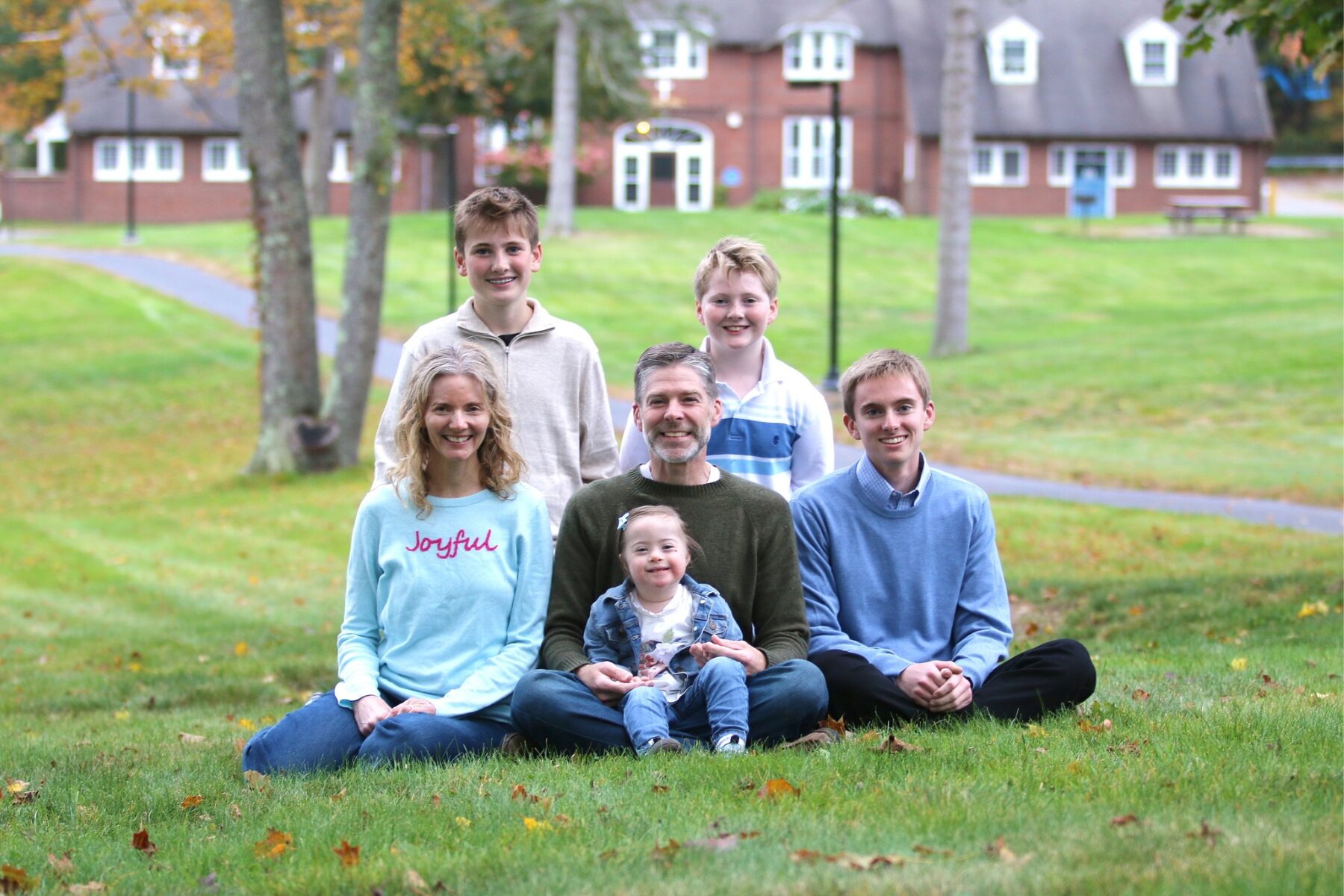The Church Is a Place for Belonging
 Dr. Patricia Batten
Dr. Patricia Batten
March 21 is World Down Syndrome Day. This date has been purposefully designated to celebrate our loved ones who have three copies of chromosome 21 (3/21). People with Down syndrome want to be included. They seek the same participation as others when it comes to education, employment, public life, and recreational life.
But as a Christian, I seek more for our daughter. I seek belonging. Practical theologian, John Swinton, said that being included means you’re present, but belonging means you’re missed when you’re gone. People can be included without having any meaningful relationships. But belonging requires genuine relationship.
I think the church should be a place of belonging. “Now you are the body of Christ, and each one of you is a part of it” (1 Corinthians 12:27).
Audrey is now four years old and she is an active participant in the worship service at our church. But I remember the anxiety I felt when we first brought her to church. She had just begun walking and, boy, was she proud of herself! Maybe even a bit smug. After taking two or three unsteady steps, Audrey’s blueberry eyes searched for ours to seek approval. Then, she clapped for herself. The clapping got her off balance and she’d fall with a thud and a smile.
Wriggling her way out of our grip, she planted her feet on the ground and commenced the uneven Frankenstein walk along the padded pew. Pausing every few steps to wave to any onlookers, Audrey asserted her independence as she distanced herself from us. On her own two feet. And she thought she was very funny. She giggled every time her foot hit the carpeted floor, amazed that she was still standing. Gaining confidence with every step, she drew farther away and laughed louder. But the preacher was in the middle of his sermon. As he asked the congregation to consider our fears and how we might receive Jesus as king in the midst of those fears, I couldn’t help but fear how our daughter might be received at our new church. I couldn’t help but fear what others might think of our parenting. I couldn’t help but fear how her laughter would be received. But most of all, I feared her being a distraction.
When Audrey’s giggling crescendoed from mezzo to forte, Rich and I exchanged quick glances and he scooped her up and tiptoed into the foyer. We didn’t want to overstep our welcome or use up the unwritten allotment of allowable noise that every parent knows exists.
This is a major fear of many parents who are raising kids with a range of developmental disabilities. Maybe these kids are extraordinarily fidgety or they yell or call out at awkward moments with awkward movements. Many of these parents have tried to become part of the body of Christ in church after church, but they’ve faced a lukewarm welcome or outright resistance. And parents wonder, are we a distraction? To worship? To prayer? To the sermon? To the mission of the church?
Sometimes, it’s not the worship service, but it’s the issues surrounding disability that are a distraction to the work and mission of church leaders. What if dealing with disability wasn’t on their agenda? What resources would it demand? Creating a place of belonging for people with disabilities requires leadership that is willing to see individuals like Audrey as equal, valuable members of the body of Christ. When we don’t see them as equal valuable members of the body of Christ, then we will always see them as a distraction—to our mission, to our worship.
This grieves the Lord. Because it will result in churches that are not whole. It will result in churches that are missing part of the body. Referring to people with disabilities or to the issues surrounding them as a distraction to ministry actually disables the church.
Rich and Audrey spent the second half of the worship service in self-imposed exile in the church narthex. As the last chorus of the final hymn echoed, two older women exited and made a beeline over to Rich. They clasped Audrey’s hand inside theirs and they made sure Rich knew that there was no better sound in the church that morning than Audrey’s laughter. “We love her,” they said. And they did. They loved her. They loved us.
I was reminded again recently that when we worship, our audience is God. He is pleased with our music, outreach, prayer, and sermons. The proverb reminds us that “…the prayer of the upright pleases him” (15:8). The psalms invite us to praise the Lord and sing joyfully to him.[1] But I wonder if the part of the worship service that drew a smile on God’s face was watching the stumbling toddler with an extra copy of chromosome 21. I wonder if God’s delight in our worship was less about the formal, planned particulars of the service and more about the informal spontaneous laughter of his daughter with Down syndrome—a sweet and beautiful offering of praise. God is not distracted by Audrey. He delights in her.
[1] Psalms 92, 95, 98, 100, 101
 Dr. Patricia Batten is assistant professor of preaching and associate director of the Haddon W. Robinson Center for Preaching. Her most recent book is Parenting by Faith: What Jesus Said to Parents (Rose Publishing, 2019).
Dr. Patricia Batten is assistant professor of preaching and associate director of the Haddon W. Robinson Center for Preaching. Her most recent book is Parenting by Faith: What Jesus Said to Parents (Rose Publishing, 2019).